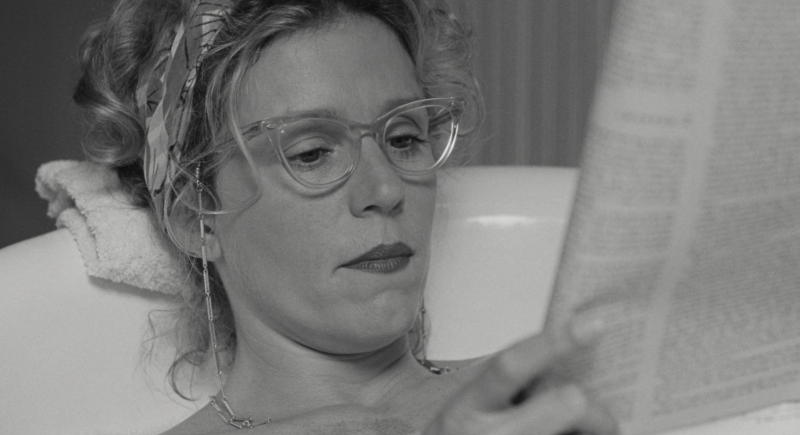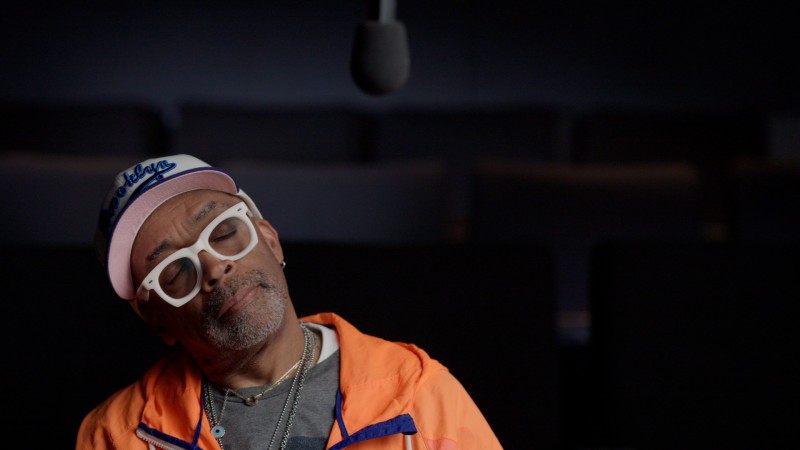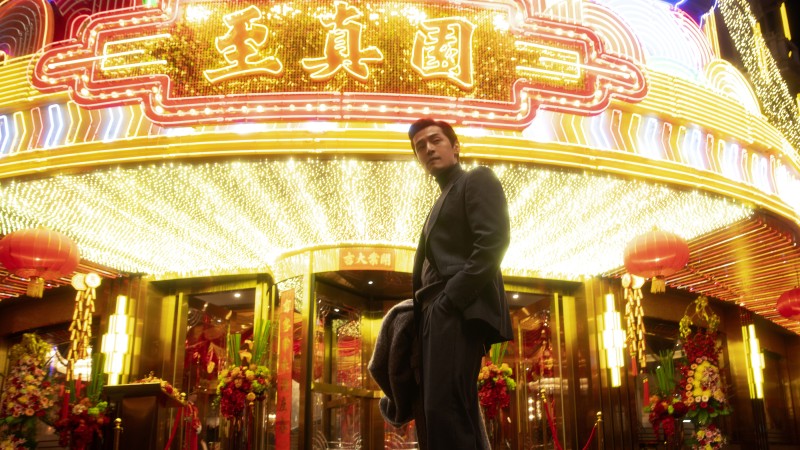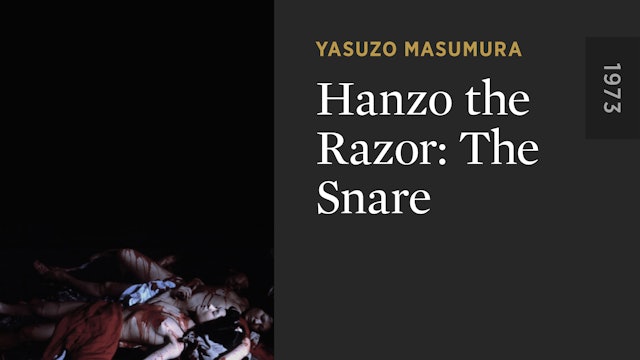
It’s often hard to pinpoint when or why a certain formerly overlooked great director comes back on the international radar. Some of them hover on the margins for years, championed by a few, but not quite becoming common knowledge—yet. That’s been the case for Yasuzo Masumura, an important postwar Japanese director who, in the U.S. at least, has never had the widespread name recognition accorded Kenji Mizoguchi or Mikio Naruse, much less that of Yasujiro Ozu or Akira Kurosawa.
This seems to have been due in part to how different Masumura was from the Japanese directors who achieved the broadest fame in the West. Masumura trained under Mizoguchi and shared that great filmmaker’s abiding interest in women’s stories, but he approached them in a very different, blunt, and outwardly genre-focused way, as in the superb Irezumi (The Spider Tattoo), from 1966, which mixes classic women’s melodrama with coolly stylish horror. Over the course of a long career, Masumura brought his shrewd perceptions to a wide range of subjects and themes, tackling topics like corporate double-dealing in the comedy Giants and Toys (1958) and government espionage in the bleakly cynical Nakano Spy School (1966).
For a long while, such name recognition as Masumura had in the U.S. came from several erotic so-called “pink” films, like the famous Blind Beast (1969) and Music (1972). The latter had a small theatrical release in the U.S. in 1974, and was greeted with something less than critical enthusiasm (“when it isn’t being simply tedious, it’s both lurid and hilarious,” wrote Kevin Thomas in the Los Angeles Times). That same year, the S&M-themed Warehouse was deemed “excruciating” by the Daily News.

So another factor in Masumura’s lower level of cross-border fame, it seems, was that there were seldom enough of his films circulating outside of Japan to give a broad perspective on his style and his real interests. The pinku works are, of course, just one part. Jonathan Rosenbaum, the director’s champion of many decades, admires Masumura for, among many other things, “creating a cinema of crazy people—films about fanatics—and never displaying a trace of sentimentality about them or anyone else.” Rosenbaum wrote that in the Chicago Reader all the way back in 1998. That same year, James Quandt curated a fifteen-film retrospective for the TIFF Cinematheque, calling Masumura “one of the significant ‘finds’ of recent years” and adding that “it seems we have another major Japanese director to contend with.” The Quandt-devised series also played Berkeley and was a success in both places.
Still, last summer, when the Karlovy Vary International Film Festival mounted an eleven-film retrospective programmed by writer and critic Joseph Fahim, audiences seemed thunderstruck. Most of the critics, cinephiles, and film writers who filled the screenings had only a light familiarity with Masumura, if any. The response confirmed Fahim’s conviction, when he put the series together, that “there is still so much to unpack and uncover about” Masumura. Even Fahim, a programmer for a major international film festival, admitted ruefully, “There are still some films of his that I haven’t been able to get hold of, and I am dying to see them.”
There is something about Karlovy Vary, held every year in the spectacularly pretty spa town in the Czech Republic, that lends itself to a revival. Efficiently run and pleasantly nonhierarchical, KVIFF offers a chance to see the buzzy releases under less pressure than one might feel in Cannes or Venice. Like other major European festivals, it draws critics and film writers from all over the world. The festival programs a major slate of new films from many countries; when I was there last year, in between Masumura screenings, I saw About Dry Grasses, Fallen Leaves, and The Taste of Things, as part of some enthusiastic audiences.
Karlovy Vary is also known for its retrospectives. And the Masumura program was, by common consent, one of the 2023 highlights. For some like Jessica Kiang, it was the highlight. It was a pleasure to see how the crowds grew for each Masumura screening, as word got out and enthusiasm intensified. By the end of the festival, I barely got into A Wife Confesses (1961).
It would have been a shame if I had been shut out, for the film (also called A Wife’s Choice) is one of Masumura’s masterpieces, my favorite of the ones I saw, and also the film that Rosenbaum cites as “supreme” in the director’s filmography. Strikingly composed in widescreen black and white, it may remind some of last year’s Anatomy of a Fall,right down to the fact that a fall is how the husband died. But Masumura’s courtroom procedural focuses not on whether Ayako Takigawa, played by Masumura’s great acting collaborator Ayako Wakao, killed her husband. She certainly did, by cutting his rope during a mountain-climbing excursion. The question is why. Was it self-defense, a sadly necessary sacrifice of one life to save her own? Or was it a callous decision based on Ayako’s yearning to be with Koda, the young man she loves, who just happened to be dangling above her on the same rope?
Her husband, Ryokichi (Eitaro Ozawa), is a professor. He has married the beautiful and much-younger Ayako for sex and the thrill of domination; she in turn married him for money and security. Many Japanese movies are about wretched marriages, but this one is a standout. Ryo’s abuse increases as he sees he has failed to break his wife, though he keeps trying. When I was young, a friend’s mother liked to repeat an old saw: “Marry for money, and you’ll work for the rest of your life.” That fate is exactly what Ayako fears, as the ghastly Ryo taunts her that he’ll never give her children and never grant a divorce. By the movie’s midpoint, the audience (it couldn’t have been just me) is just about ready to cut the rope themselves.
The fact that she’s on trial for seizing a theoretically legal chance to get rid of this ogre is the point. Ayako, it seems, is really accused of failing to do the right thing in her society, which would be dying along with her husband. (The prosecutor says so in nearly so many words.) But as filmed by Masumura, she isn’t passive, isn’t a victim. Ayako can be angry, vindictive, even conniving. Masumura understands that you don’t have to be “nice” to be stuck in a terrible situation, and in particular, he understands that about women.
One of his earliest jobs was as an assistant to Mizoguchi on films including Princess Yang Kwei-fei and Street of Shame. The latter features Wakao as Yasumi, a sex worker who loan-sharks her brothel colleagues, and perhaps it was something in Yasumi’s proud ruthlessness that made Masumura realize Wakao fit right into his world. But Mizoguchi’s oppressed, virtuous women have little in common with those in a Masumura movie. He seems to relish his characters’ defects, their consistently lousy decisions.
Black Test Car (1962) is an even harsher look at deeply flawed people, with male competitiveness taken to warlike extremes in a corporate environment. The “Pioneer” prototype of the title shows up at the start covered in a literal black shroud, its design so secret that it’s covered even during an ultimately disastrous trial run. The Tiger Motorcar Company is staking its entire future on the Pioneer sports car, and its head of corporate security, Toru Onoda (Hideo Takamatsu), is maniacally focused on keeping the design away from rival Yamato Company, led by the even more unscrupulous Matawari (Ichiro Sugai), who learned his craft working for Japanese wartime intelligence. Onoda and his assistant Asahina (Jiro Tamiya) soon realize there is a mole at Tiger, and they must root out this “traitor” lest Yamato’s “MyPet” car conquer the market before the Pioneer can even gain a toehold.
Printers are bribed for blueprints, outsiders are paid to fake safety flaws, and Tiger even hires a lip-reader to camp out in a neighboring building and decode what’s said at Yamato’s meetings. Asahina goes so far as to ask his fiancée, bar hostess Masako (Junko Kano), to sleep with Matawari and steal the pricing formula for the MyPet. It’s not just to help his career, Asahina argues, in a scene that drew appreciative hoots at Karlovy Vary for the man’s sheer unbridled nerve. If he gets a promotion, Masako can quit her job and they can be married sooner. She’s appalled—but she still goes through with the scheme.
Masumura famously disliked close-ups, calling them a way for actors to preen and claiming he never used them, but otherwise his visual vocabulary was brilliantly flexible, able to vary as much as his stories. “Some believe more in the image, others believe in the story,” he stated in one interview. “Personally I believe in the story. Because images aren’t absolute, one can’t express everything with them.” So, for example, the stark melodrama A Wife Confesses is framed and blocked with a steely focus and precision, punctuated by emptiness that seems almost to push Ayako around as much as her hateful husband. But Black Test Car’s punchy, staccato scenes often unfold at an angle seemingly just to the side or over our heads, as though we’re craning our necks, crammed along with the characters into these bare, uniform spaces.
The connection between these corporate spy games and those played by opposing armies is made quite clear in Black Test Car; as Rosenbaum puts it, the director “sees a continuity between wartime madness and peacetime madness.” Masumura works in vivid strokes to convey the violence and conformity of Imperial Japan. His own feelings about this can be deduced from a 1969 Cahiers du cinémainterview, in which the director said he’d like to film Shusaku Endo’s 1957 novella The Sea and Poison—a horrifying tale involving medical experimentation on American POWs. But as with other postwar Japanese directors, there is little explicit depiction of the country’s war crimes. For example, in the brilliant Red Angel (1966), Ayako Wakao has another bravura role as Sakura, a nurse in wartime Manchuria, where the Imperial Army committed crimes of shocking brutality. Yet when a soldier is brought in, near death from the torture he’s suffered, the soldier is Japanese, and the torture was inflicted by the opposing army.
Still, whatever political points Masumura could not or would not include explicitly, he conveys in other ways. In Red Angel he does so mostly in the character of Okabe (Shinsuke Asida), the impotent, morphine-addicted doctor Sakura falls in love with. Okabe knows the war has no point—that in fact it never did. Not only can Okabe not save his patients, even if he does they will be kept from returning home, for fear their missing limbs and shattered psyches will hurt civilian morale. In this world, drugs and sex are the sole means of keeping the horrors at bay, with Sakura giving in to the pleas of an armless soldier for oral sex—only for the man to kill himself afterward.

The despair and pointlessness are not just mistily ascribed to all war, they are quite specific to this one. That holds true for another Masumura war film in an entirely different emotional key, Hoodlum Soldier (1965), a satirical comedy about unlikely army buddies played by Shintaro Katsu and Takahiro Tamura, set also in Manchuria. The soldiers spend their time on drunken pranks and astonishingly violent feuds, and not on fighting the enemy. It doesn’t take much, however, to realize we’re meant to wonder how the Japanese soldiers could possibly be treating Chinese civilians, if this is how they treat each other.
As daring and individual as these works looked at Karlovy Vary and in prior revivals, perhaps it’s taken a while for Masumura to get his due simply because at home, in Japan, at first his films didn’t seem to stand out. He was seen as a proficient genre director, but according to some critics, Masumura’s home audiences didn’t consider him much more than that. For instance, in a 1999 dialogue with Rosenbaum, Japanese critic Shigehiko Hasumi told his colleague, “I consider Masumura’s mise en scène in Red Angel extremely radical. But at that time, this film was considered simply like a porno movie,” and Hoodlum Soldier was just the start of a series (it in fact spawned eight further adventures). Hasumi added that he was pleased “the younger generation” was beginning to discover these works. Now that a whole other generation is upon us, and an international audience has once more been able to see the films under ideal conditions, hopefully Masumura will again be discovered, and this time he’ll stay that way.
This year, Karlovy Vary will focus not on a specific auteur, but on a great writer and how his work has changed cinema—in a program entitled “The Wish to Be a Red Indian: Kafka and Cinema.” The Czech writer died a hundred years ago this June 3, aged just forty, and has exerted a profound influence, even contributing a (frequently misused) word to the language, Kafkaesque. Films planned for this strand range from direct adaptations like Orson Welles’s The Trial and Jan Němec’s Metamorphosis, to other Kafka-inflected works like Martin Scorsese’s After Hours, Roman Polanski’s The Tenant, and Shinya Tsukamoto’s Tetsuo.
And at the end of the summer, as it happens, there will be another occasion to spread the word about Masumura. August 25 will mark his centenary, and hopes are high that all the years of energy put into bringing this important director into perspective are about to pay off at last.
More: Features

A Year’s Worth of Essential Reading
As we come to the end of 2025, we’re looking back at some of the essays and interviews we’ve shared with you over the past year.

Room Tone 2025
Celebrate the holiday season with this special treat from our production team.

Dying Worlds: Adoor Gopalakrishnan’s Dramas of Cosmic Disorder
The director of Rat Trap and Monologue was an uncompromising artist who helped establish the Indian state of Kerala as a hub of bold political filmmaking.

Blossoms Shanghai: An Introduction
Beginning on November 24, the Criterion Channel will exclusively premiere the long-awaited television series from visionary director Wong Kar Wai.

